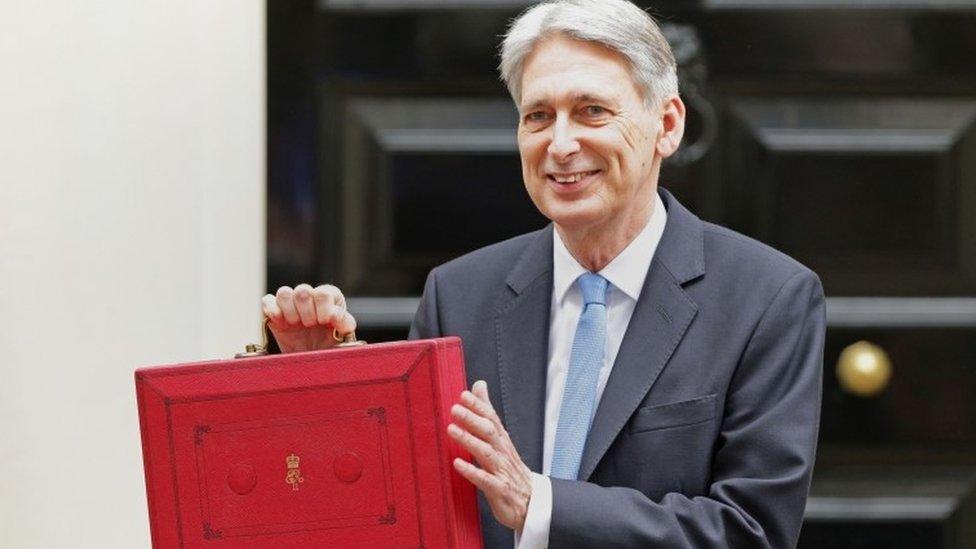Why is there no Budget this March?
- Published

It was announced with a flourish in 2016; the Spring Budget of the following year would be the last.
Philip Hammond, the Chancellor, said he was frankly a bit weary of two major announcements on tax and spending every year: a Budget in the spring and a "statement" in the autumn - which had morphed into pretty much the same thing.
No sooner had the Treasury finished one, it had to start preparing for the other.
Fiddling with tax rates and casting around for new spending commitments meant that frenetic activity often took the place of considered policy making.
Time for consultation was limited and "omni-shambles" announcements that no-one liked would be a relatively regular occurrence.
Pasty tax, anyone?
Mr Hammond has said there will still be two economic statements a year.
He has little room for manoeuvre on that - it is a requirement of the Industry Act, passed in 1975 when such was the state of the economy the government was regularly being ordered back to Parliament to explain itself.
Mr Hammond will still hold a "statement" in spring - the first is on Tuesday.
That will be a summary of the state of the economy and the public finances.
That leaves one Budget - where tax and spending changes will be announced - in the autumn.
When he was the shadow chancellor, George Osborne said he wanted to do something similar.
But, when he stepped into the Treasury, Mr Osborne realised that two statements and two attempts at changing important policies were useful.
Firstly, of course, it gave a major political platform to this most political of chancellors.
Meaning Mr Osborne commanded the limelight at least twice a year.
Also, with the financial crisis rumbling on, austerity turned up to 11 and Britain limping out of recession, Mr Osborne needed to regularly update policy, public spending and tax responses.
It was very similar for his two predecessors.
Gordon Brown was also a very political chancellor who liked nothing better than beating Tony Blair to a spending announcement.
Alistair Darling, who was less interested in leading the 10 o'clock news, admitted that the events of the financial crisis "got in the way" and he was obliged to publish six Budgets during his time in office.
With Brexit approaching, Mr Hammond may also feel himself to be under pressure to produce more Budgets in the future than he is presently planning.
But, similar to Mr Darling, he is less interested in the political limelight and insists that he is more concerned with good policy developed over time.
Given the mess of the Spring Budget of 2017, when the Chancellor announced an increase in taxes for the self-employed, only to abandon it a week later, a greater amount of thinking time might be very welcome.